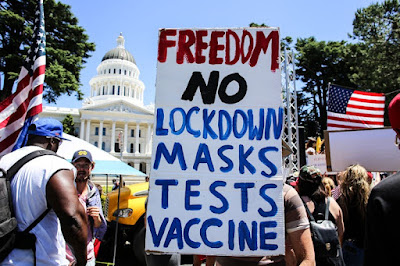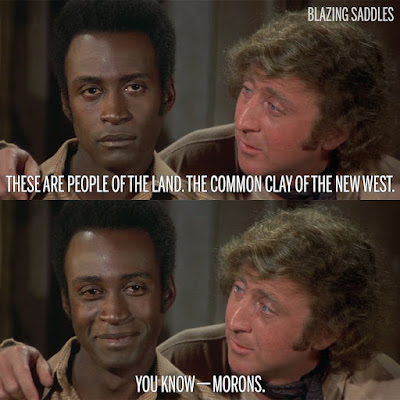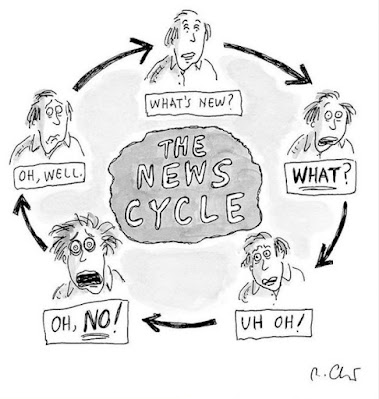He Had a Hat: Well, here we are again. Fall and winter holidays approach with Covid-19, vaccines and boosters, masks and mandates, colds and the flu.
And the resistance.
Mr & Mrs Abq Jew were recently discussing the vaccine-resistant with their daughter (in-law) Jessica the Surgeon. We asked each other: why would anyone in this great country of ours refuse a FREE, no-purchase-required, readily available, life-saving medicine?
Here is one answer that's going around:
These are people of the land. The common clay of the new West.
You know... morons.
You can Google it if you want, but here's a classic version.
A storm descends on a small town, and the downpour soon turns into a flood. As the waters rise, the local preacher kneels in prayer on the church porch, surrounded by water. By and by, one of the townsfolk comes up the street in a canoe.
"Better get in, Preacher. The waters are rising fast."
"No," says the preacher. "I have faith in the Lord. He will save me."
Still the waters rise. Now the preacher is up on the balcony, wringing his hands in supplication, when another guy zips up in a motorboat.
"Come on, Preacher. We need to get you out of here. The levee's gonna break any minute."
Once again, the preacher is unmoved. "I shall remain. The Lord will see me through."
After a while the levee breaks, and the flood rushes over the church until only the steeple remains above water. The preacher is up there, clinging to the cross, when a helicopter descends out of the clouds, and a state trooper calls down to him through a megaphone.
"Grab the ladder, Preacher. This is your last chance."
Once again, the preacher insists the Lord will deliver him.
And, predictably, he drowns.
A pious man, the preacher goes to heaven. After a while he gets an interview with God, and he asks the Almighty, "Lord, I had unwavering faith in you. Why didn't you deliver me from that flood?"
God shakes his head.
"What did you want from me?I sent you two boats and a helicopter."
@GovMLG, @MayorKeller,
your own doctors and nurses,
and real scientists on TV."
A Jewish grandmother takes her grandchildren to the beach. They’re playing in the sand when suddenly, a massive wave comes and pulls the smallest grandson out into the water.
Panicked, the grandmother prays to God. “Oh God, please bring him back! Please let him live!”
Suddenly, an even bigger wave bursts out of the ocean, setting the little boy down right at his grandmother’s feet.
She scoops him up into a hug. Then she stares up at the sky and says,
“He had a hat.”
A grandmother and her beloved grandson are at the beach. They’re playing near the shore. Suddenly a giant wave comes and sweeps the boy out to sea. The grandmother is beside herself with grief. She drops to her knees. She’s weeping and sobbing and implores God to return her little one.
Lo and behold, another giant wave comes and deposits him back on the shore, unharmed. The grandmother embraces him and, overwhelmed with gratitude, thanks God over and over and over. Then she pauses, looks up and says to God, “But where’s his little hat?”
I have heard this joke in two ways. One where the grandmother, at the end, sort of shrewishly, accusingly yells at God: “He had a hat.”
But I prefer the one where she’s more matter-of-fact. Not yelling or accusing. Just, like…asking. Because, you know, there was a hat involved. “Where’s his little hat?”
I also like the addition of “little,” which to me makes it funnier. “Little hat” cracks me up for some reason.
The joke says something about the personal relationship that Jews feel with God. My mother used to look out the window of her car when she found a good parking space and say, “Thank you, God.” He is the Father, the Creator of all, the God of the Old Testament.
In Judaism, there aren’t intermediaries such as saints and Jesus, and Mary, and then the Pope and all of that. There is God. But that doesn’t mean that when the little hat goes missing, you don’t notice it.
And here is The Jewish Week's Editor-in-Chief Andrew Silow-Carroll's interpretation.
We signed a contract!











No comments:
Post a Comment